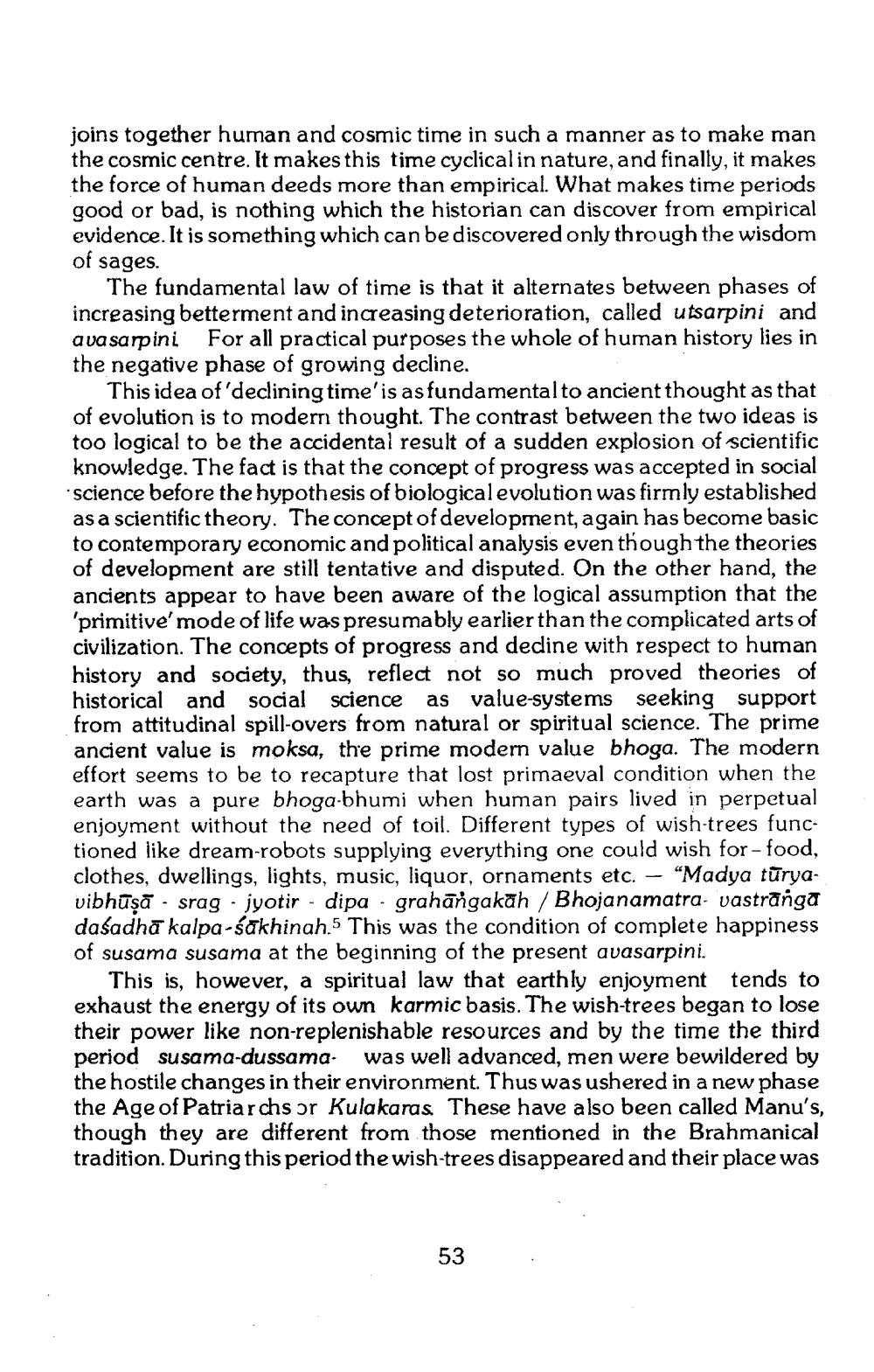________________
joins together human and cosmic time in such a manner as to make man the cosmic centre. It makes this time cyclicalin nature, and finally, it makes the force of human deeds more than empirical. What makes time periods good or bad, is nothing which the historian can discover from empirical evidence. It is something which can be discovered only through the wisdom of sages.
The fundamental law of time is that it alternates between phases of increasing betterment and increasing deterioration, called utsarpini and ava sarpini. For all practical purposes the whole of human history lies in the negative phase of growing decline.
This idea of declining time'is as fundamentalto ancient thought as that of evolution is to modern thought. The contrast between the two ideas is too logical to be the accidental result of a sudden explosion of scientific knowledge. The fact is that the concept of progress was accepted in social science before the hypothesis of biological evolution was firmly established as a scientific theory. The concept of development, again has become basic to contemporary economic and political analysis even though the theories of development are still tentative and disputed. On the other hand, the ancients appear to have been aware of the logical assumption that the 'primitive' mode of life was presumably earlier than the complicated arts of civilization. The concepts of progress and dedine with respect to human history and society, thus, reflect not so much proved theories of historical and social science as value-systems seeking support from attitudinal spill-overs from natural or spiritual science. The prime ancient value is moksa, the prime modern value bhoga. The modern effort seems to be to recapture that lost primaeval condition when the earth was a pure bhoga-bhumi when human pairs lived in perpetual enjoyment without the need of toil. Different types of wish-trees functioned like dream-robots supplying everything one could wish for-food, clothes, dwellings, lights, music, liquor, ornaments etc. - "Madya tūrvavibhūsă · srag - ivotir - dipa - grahāngakuh Bhojanamatra- vastrānga daśadhā kalpa-sakhinah.5 This was the condition of complete happiness of susama susama at the beginning of the present avasarpini.
This is, however, a spiritual law that earthly enjoyment tends to exhaust the energy of its own karmic basis. The wish-trees began to lose their power like non-replenishable resources and by the time the third period susama-dussama. was well advanced, men were bewildered by the hostile changes in their environment. Thus was ushered in a new phase the Age of Patriarchs or Kulakaras. These have also been called Manu's, though they are different from those mentioned in the Brahmanical tradition. During this period the wish-trees disappeared and their place was
53
.




